The graduate program in the Department of Animal Science offers four areas of emphasis.
Genetics
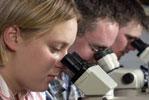
The Genetics program offers graduate M.S. and Ph.D. degrees in avian, bovine, or porcine molecular genetics; applied dairy cattle genetics; and quantitative genetics. New and highly advanced laboratory and computing facilities are used for current research in genome analysis, gene expression studies, mapping of quantitative trait loci (QTL), embryonic skeletal muscle development, the use of primordial germ cells. Current research topics include genetic analysis of health and fertility of dairy cattle from field data, selection index weights for dairy cattle, impact of selection for body size in dairy cattle, monitoring levels of inbreeding in breeds of dairy cattle, crossbreeding in dairy cattle, bovine and porcine functional genomics, annotation of the bovine and porcine genomes, genetic mapping of biomedical and performance traits in pigs, genetic engineering of the pig genome, dairy QTL mapping and genome-wide association studies, and statistical analysis and computational tools for QTL analysis and genome-wide association studies using SNP markers.

Course work is offered in advanced dairy cattle breeding, linear model methods, selection index theory, statistical genetics and genomics, and molecular biology techniques. Students in the Genetics program generally are required to take courses from the campus-wide course offering, including courses in statistics, population and quantitative genetics, evolutionary genetics, cell biology, developmental biology, and molecular genetics.
Nutrition
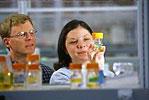
The nutrition area of emphasis involves faculty and students with expertise and resources aimed at a number of different areas including determination of nutrient requirements for livestock and poultry; influence of nutrition and feeding management on reproduction and milk production; evaluation of feeding value of alternative feeds; relationships between host and rumen microbes to maximize the nutrient supply for productive functions in the ruminant; and evaluation of feed additives and growth promotants and their effects on growth, feed conversion, meat quality, and economics.
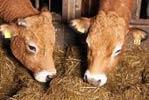
Recently, much of the focus in this area of emphasis has involved evaluating diets and feeding programs aimed at reducing odor and nutrient excretion in livestock manure while supporting optimum productivity. Financial support has been provided from commodity groups as well as a variety of extramural sources. Newly-remodeled laboratory facilities on the St. Paul Campus, construction of new swine research facilities at the Southern Research and Outreach Center in Waseca, MN, and the West Central Research and Outreach Center in Morris, MN, and an outstanding academic environment on the St. Paul Campus and branch stations provides an excellent and unique opportunity for students to increase their knowledge and enhance their career opportunities.
Physiology

The animal physiology program offers students the opportunity to pursue M.S. and Ph.D. degrees studying the biological processes which are critical for the functioning of all animal species. Research conducted by this graduate faculty explores the basic processes of cells, tissues and organ systems in animals and humans and the application of this knowledge for efficient animal production and the enhanced understanding and treatment of animal and human diseases. Areas of research dealing with animal reproduction include: the neuroendocrine control of reproduction; the pituitary and intragonadal regulation of ovarian and testicular germ cell maturation as well as the analysis of seminal plasma for improved fertility. Research examining cellular and molecular processes in relation to disease include topics such as: the regulation of ion and molecule transport; the mechanisms of aging/cellular senescence; the development of immortal cell models; and the paracrine interactions and cell signaling important in carcinogenesis. Research in the area of functional genomics deals with the development of animals for modeling and treating human disease, particularly diabetes and cystic fibrosis.
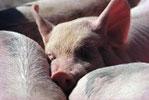
Students choosing this area of emphasis become a part of an engaging, supportive and collaborative group of researchers with an interdisciplinary approach to graduate education and research. Coursework options encompass many disciplines in addition to physiology including biochemistry, cell biology, molecular biology, neuroscience and veterinary medicine. Experimental approaches employed by these researchers span classical biochemical analyses to state-of-the-art molecular and cellular techniques for the development of cellular and animal models. Interactions with faculty and students from multiple departments and research programs enhance the graduate experience. Students graduating from this program receive excellent training for a variety of future careers including employment as scientists and educators at academic, industry and government institutions as well as further education as veterinary and medical practitioners.
Production Systems
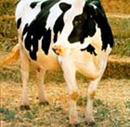
The production systems area of emphasis provides unique and exciting opportunities to gain multidisciplinary tools essential for a career in the livestock industry that will include identifying and solving problems in management systems, animal welfare, environmental impacts, and food quality/safety issues.
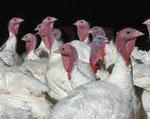
Animal Sciences faculty in collaboration with colleagues in other departments in the College of Food, Agricultural and Natural Resource Sciences, and the College of Veterinary Medicine allow student access to a diverse multidisciplinary team for those interested in an animal production systems graduate program. Resources will include both campus and out-state livestock facilities and on-farm cooperators. Examples of production systems research projects include statistical control process control principles in dairy and swine, low input dairy and swine, dairy crossbreeding, alternative poultry, animal comfort and behavior in dairy and swine, cow-calf and beef feedlot management, and decision making processes for evaluating management at the farm level for options across all species with implications to environmental impact and food quality/safety.
